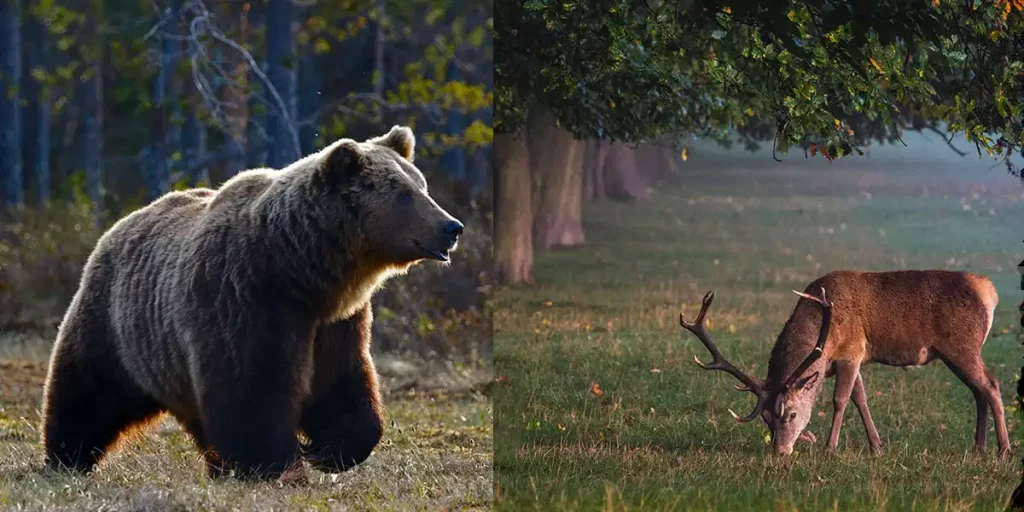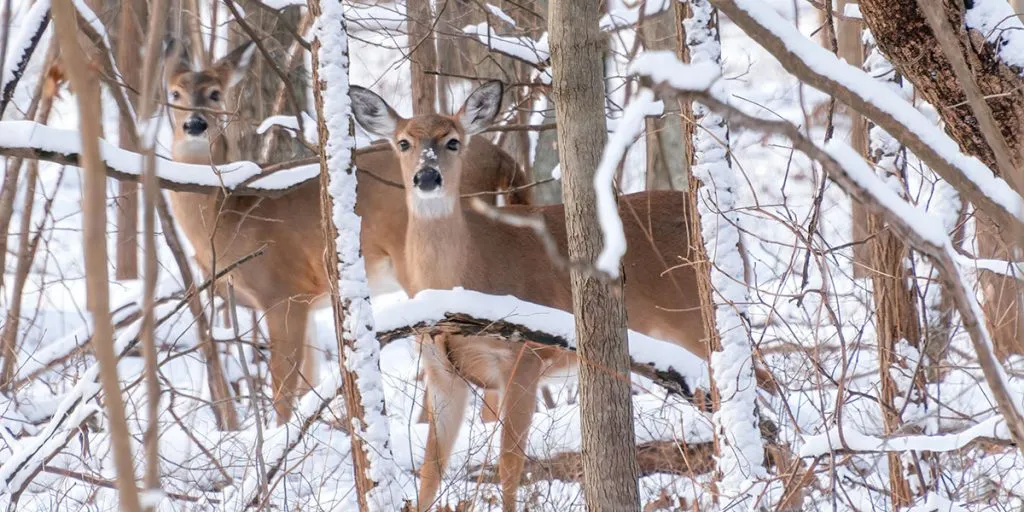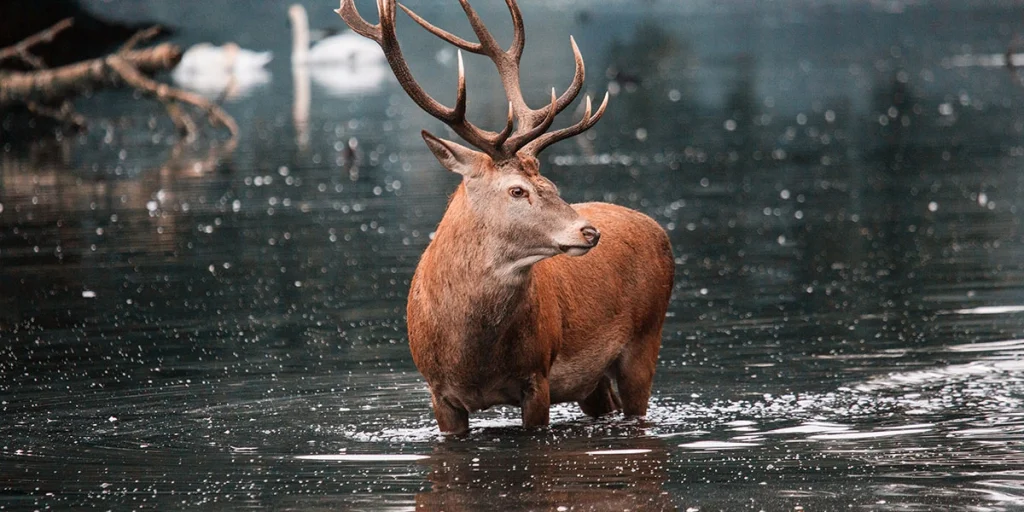Bears are omnivores with an appetite for fish and meat. Sharing a habitat with deer, it is not unlikely for the animals to have a predator-prey relationship. However, it is not as likely to happen as you might think.
In general, bears will only hunt and eat deer if the opportunity arises. Bears are more likely to go for easier prey than deer, but are known to kill helpless fawns, or feed on carcasses of dead deer and moose. It is unlikely for a healthy adult deer to be successfully hunted and eaten by a bear.
A PennState University study showed bears are a major predator of fawns. Baby white-tailed deer are commonly killed by black bears, even more so than coyotes. Grizzly bears are also known to be efficient hunters of the generally defenseless fawns.
When Do Bears Eat Deer?
Bears are most likely to eat deer that are weak and unlikely to escape. A bear will generally target newborn fawns, but will also hunt and kill adults that are injured or old. Deer killed by wolves or other predators are commonly scared away by large bears, so they can feed on the carcass.
Only when the opportunity arises and they think they can get the upper hand, a bear will choose to actively hunt and kill deer.
It is important to note that none of the deer species are considered primary prey for bears. It is much more likely they choose smaller, easier-to-catch animals, including river salmon and small reptiles.
Only about 10% to 50% of the overall bear diet consists of meat, depending on availability. Of this, only a very limited percentage will be deer meat. The rest of their daily consumption generally consists of plant-based foods.
Bear Diet Is Mostly Plant-Based
While all bear species are commonly classified as carnivorous animals, a lot of their diet is actually plant-based. Bears are more likely to go for easy herbivorous meals such as plants, grasses, grain, berries, roots, or mushrooms.
The protein-rich part of their diet also isn’t exclusively hunted game or carcasses. Insects, amphibians, reptiles, and fish are the preferred food sources for most bear species. Generally, these are easier to come by and require a lot less energy to catch and consume.
When autumn rolls around and bears need to fatten up for winter hibernation, it is easier for the animals to focus on widely available plant-based foods and fish. Hunting deer would require a tremendous amount of energy, which they need to preserve for the cold winter months.
Newborn Fawns Are A Seasonal Bear Meal
Most newborn baby deer are born in early summer, between late May and early June. Newborn fawns spend their first week in hiding (a total of 4 to 6 days), which is the best moment for a bear to hunt and kill deer offspring.
This means that fawns are merely a ‘seasonal protein treat’, as gruesome as that might sound to some.
The short window of time in which newborns hide in the tall grass is very limited, and this happens only a few weeks per year. It is not a very reliable food source for bears, but merely an opportunistic meal that they might encounter within their wider habitat.
While a lot of fawns get killed by bears every year, the importance of deer to the bear diet should not be overstated. Only in summer, the animals are likely to be part of their diet. In other parts of the year, they will instead focus their efforts on weak and slow individuals.
Do Bears And Deer Get Along?
Generally, bears and deer do not get along in the wild. Bears are relatively large animals and will almost always be perceived as a potential threat by deer. The animals have a predator-prey relationship and the sight of a bear will incentivize most deer to run away.
However, we all know that nature can work in mysterious ways. There are always exceptions to the rule: you might encounter a deer that is so preoccupied with competing for a female, that it will not even pay attention to nearby bears.
After all, it is not likely for a bear to attack and kill an adult deer, especially a large buck or stag. The animals live in small groups and are likely to alert each other with warning sounds for any looming threats, increasing their odds of survival.
Bears Eat Deer, But Only Occasionally
Two large mammals that share the same piece of land are bound to interact. For the bear, the sight of a deer is generally not very threatening. They might back away from a moose or deer during rutting season, but that’s mainly because it’s not worth the effort.
A deer will always be seen as potential prey by any bear species.
Bears are most threatening to newborn fawns, which are largely helpless during their first days of existence. This is, however, only a very limited window of time every year. During any other part of the year, only weakened deer should fear the sight of the mighty bear. It is much more likely to be killed by another predator, such as a wolf.



